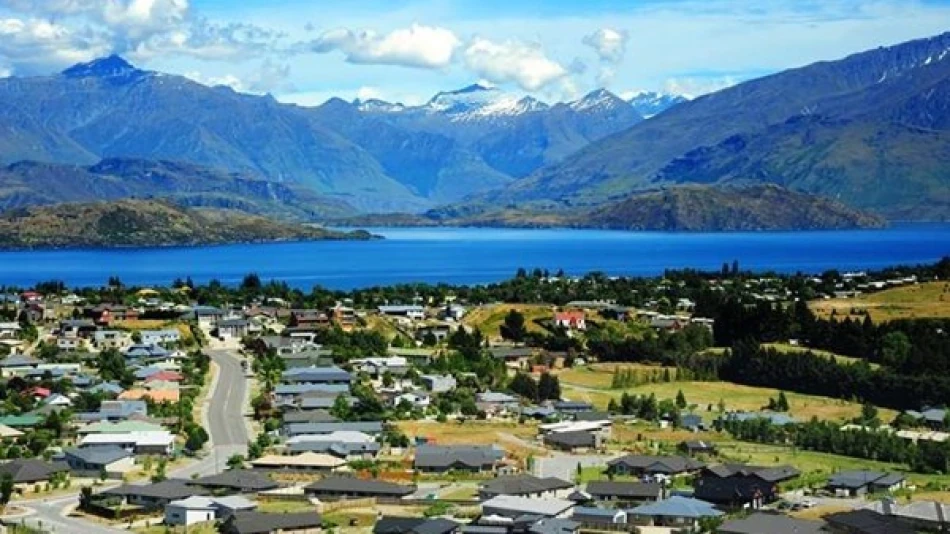
New Zealand Explores Easing Restrictions on Foreign Real Estate Investments
New Zealand Eyes Foreign Investment Revival Through Luxury Real Estate Exception
New Zealand's coalition government is preparing to create its first major crack in the country's foreign property ownership ban, with plans to allow wealthy overseas investors holding "golden visas" to purchase luxury homes worth at least NZ$5 million ($3 million USD). The move signals a strategic shift toward attracting high-net-worth individuals as the nation seeks to revitalize foreign investment flows that have been constrained since 2018.
The Golden Visa Gateway
According to Bloomberg sources familiar with the matter, the proposed exemption would exclusively apply to holders of New Zealand's investor visa program, commonly known as golden visas. The policy change is expected to be discussed during a government coalition meeting next Monday, with an announcement likely to follow shortly if approved.
The threshold of NZ$5 million represents a clear targeting of ultra-high-net-worth individuals, positioning New Zealand to compete with established golden visa programs in countries like Portugal, Malta, and Australia. This price point effectively limits the exemption to luxury properties in prime locations such as Auckland's waterfront districts and Queenstown's exclusive residential areas.
Reversing Course on Foreign Ownership
The potential policy shift marks a significant departure from New Zealand's restrictive stance implemented under former Prime Minister Jacinda Ardern's Labour government in 2018. That blanket ban on foreign property purchases was designed to cool an overheated housing market and address public concerns about affordability for local buyers.
However, the current coalition government appears to be balancing domestic housing concerns with the need for foreign capital injection. By limiting the exemption to the luxury segment, policymakers are attempting to attract investment without directly competing with average homebuyers.
Global Competition for Wealthy Migrants
New Zealand's move comes as nations worldwide intensify competition for wealthy migrants and their capital. The UAE has streamlined its golden visa program, Singapore continues to attract family offices, and Portugal recently modified its golden visa requirements. Post-pandemic economic pressures have made foreign investment attraction a priority for many developed nations.
The timing is particularly strategic as wealthy individuals from Hong Kong, mainland China, and other regions continue seeking stable jurisdictions for investment and residence. New Zealand's political stability, quality of life, and proximity to Asia-Pacific markets make it an attractive destination for this demographic.
Market Implications and Timeline
Real estate industry observers will likely view this development as a positive signal for New Zealand's luxury property market, which has experienced cooling alongside broader housing market corrections. High-end developers and real estate agents specializing in international clients may see renewed opportunities.
However, implementation remains distant. Sources indicate that changes won't take effect until late next year, pending passage of foreign investment legislation. This extended timeline suggests the government is taking a measured approach, possibly allowing for public consultation and fine-tuning of the policy framework.
The proposed exemption represents a calculated gamble: attracting foreign capital and investment expertise while maintaining restrictions that protect housing affordability for ordinary New Zealanders. Success will largely depend on execution details and whether the luxury market exemption can deliver meaningful economic benefits without reigniting broader housing market pressures.
Most Viewed News

 Layla Al Mansoori
Layla Al Mansoori






